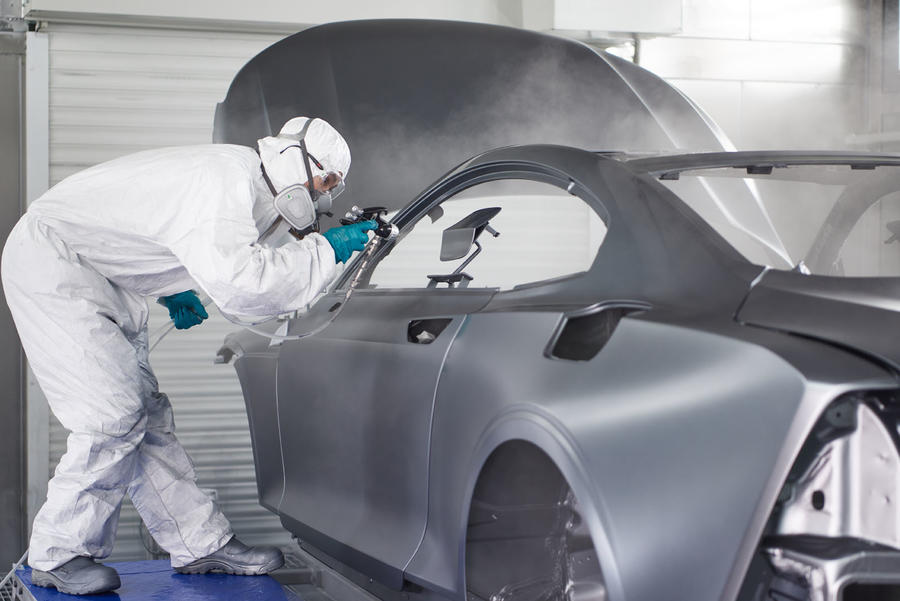Volvo Cars manufacturing plant in Daqing, China
Top talent is in demand amid a turbulent employment market, as brands like Nio and Ora start to build UK presence
Industry insiders will have been startled by the recent news that Volvo high-flyer Matt Galvin had suddenly departed the company.
Commercial director Galvin, six years at Volvo UK and a key influence on the brand’s recent business renaissance as well as the likely successor to managing director Kristian Elvefors, was lured away by an even better offer from Chinese electric car maker Nio. He has been tasked with establishing from scratch a new brand in the UK with a sales, parts and service operation. It’s the sort of career-defining offer that comes rarely to a car executive.
There are power politics at play here, of course. Volvo is owned by Chinese company Geely, and Galvin’s departure to an ambitious Chinese rival shines a light on a challenge confronting Chinese automotive brands more than others: how to set up new UK operations and recruit the best staff during a time of wage inflation, a skills shortage and the upheaval of electrification.
Every car maker in the UK is facing some of these problems, of course, but the next wave of new brands coming here will be predominantly from China and require completely new workforce teams, at a time when the recruitment environment is the toughest it has been for decades.
“This is a real issue for all industries, but for Chinese OEMs, the timing is difficult,” said Lynda Ennis, founder of Ennis & Co, an executive search specialist in the automotive and mobility industries. “To attract the best talent is going to require some clever and flexible management thinking.”

Next month, Ennis & Co will publish its Skills Evolution: Roadmap 2025 report that will analyse the trends and issues. Galvin’s departure has raised fears at Volvo UK, for example, of further defections as Nio builds its new management team from the ground up and fills key posts in sales, service and finance using colleagues whose skills are well established.
But Nio, which isn’t commenting on the situation, is essentially following a well-trodden path in recruiting local talent to set up a whole new sales operation.
French, German and Italian brands started the process in the 1960s and 1970s when they moved in to challenge the dominance of British Leyland and Ford in the UK market, and the Japanese and Koreans continued the pattern in the 1980s, 1990s and early 2000s. In short, install a chairman from the board at company HQ to oversee the new UK operation and link with main board directors, and then recruit locally for the best talent in sales, service and other specialist functions.

The Chinese, however, are facing very different post Covid employment market conditions. A second wave of perhaps six new brands is set to hit the UK market in the next three or so years as Britain pivots towards EVs, a strong area for Chinese car makers.
As well as Nio, expected arrivals include Great Wall, with its Ora Cat EV; Aiways, with its U5 electric SUV; and Xpeng, which has the P5, a Tesla Model 3 rival. There’s also Changan, which already has an engine design facility in Nottingham, and WM Motor, with its EX6 SUV.
“There are very different circumstances now, though,” said Ennis. “The car industry is shifting to battery-electric and expertise in data services is emerging at the cutting edge, so executives with experience in the EV world and data software are in the top three areas where shortages are most acute – and they are in demand from other industries.”
It isn’t just a UK issue. Manpower Group, the world’s third-biggest staffing company, publishes an annual employment outlook survey. Its most recent report says the global skills shortage is the largest for 16 years.
So how do new OEM entrants make headway in the UK? One possible strategic shortcut for the second wave of Chinese OEMs would be to acquire an established dealer group or distributor for its top expertise, although there is no sign of this happening yet.
If recruiting local talent for a ground-up operation, Ennis suggests finding staff who have flexible skills that can be transferred from one specialist area to another – what she terms ‘duplicating’. Another solution is to look more flexibly at filling specialist posts by, for example, finding the top talent and offering shorterterm contracts. That might be more expensive, but it takes away the problem of longterm commitment and staff retention. An important strategic move, meanwhile, might be to locate away from the Midlands, where automotive skills shortages are already acute.
At the operational or technical level, reskilling is an option, whereby staff with expertise in traditional engineering are moved across to the electrical and battery electric technology areas. “The most highly skilled people won’t be applying to job adverts”, added Ennis. “They aren’t sitting around, on the market, looking.”
Lotus, which is controlled by Geely, has been grappling with the challenge of growing its workforce. In September, Lotus will be five years under Geely majority ownership, during which time the workforce has roughly doubled to 1500. Posts have been filled in some cases from Europe but more usually from UK rivals in the Midlands, such as Jaguar Land Rover, which has shed staff in cost-cutting moves.
What Lotus hasn’t done is a mass import of Chinese staff, instead limiting a few key roles to Geely board-level people and specialists such as translators, while keeping the flavour of the company British.
“We are proud of our heritage and will protect and nurture it very firmly,” said one insider. Amid a tough employment market and the upheaval of electrification, finding the best staff to launch new car operations in the UK will stretch China’s fabled entrepreneurial spirit to the limit.
Expat life loses its allure
The flow of automotive executives from the UK and Europe to China might be slowing down, which is another post-Covid and skills gap development, according to Ennis & Co’s Lynda Ennis.
The shine has been taken off oversees postings, with many expat staff struggling with extensive periods of lockdown in China, and two years of erratic air travel preventing visits home.
With recruitment more difficult, the cost of employing foreign talent in China has gone up: highquality housing, travel and fees at private international schools can easily add 50% or more to the near six-figure salaries a top European car exec can command in China.
The rewards are certainly there, however, for those expats with a top pedigree who are willing to take on the challenge. “There’s not really a pattern to salary and benefits, because quite often there are three or four companies chasing the same person,” said Ennis.
One practice she suggests might become more widespread to solve a skills shortage in China is to send a key Chinese employee overseas to learn from a new market, before bringing them back to deploy new-found skills and experiences.
Source: Autocar
